
In 'Ameritopia: The Unmaking of America', Mark R. Levin delves into the philosophical foundations of the American political system and contrasts it with the Utopian ideologies that seek to erode individual liberties and constitutional constraints. Through a powerful blend of historical analysis and contemporary commentary, Levin investigates the dangers of centralized power, societal control, and the disregard for natural rights. Drawing parallels between the Founding Fathers' vision and the current political landscape, 'Ameritopia' serves as a thought-provoking exploration of the ongoing struggle between liberty and tyranny. With meticulous research and compelling arguments, Levin challenges readers to reflect on the significance of preserving the American principles of limited government and individual freedom.
About Mark R. Levin
Mark R. Levin, born in 1957, is a prominent conservative commentator, author, and constitutional lawyer. Levin is best known for his bestselling books that have made a significant impact on American political discourse. His work often reflects his deep understanding of the U.S. Constitution and his staunch advocacy for conservative principles. Some of his notable works include 'Liberty and Tyranny', 'The Liberty Amendments', and 'American Marxism'. Levin's insightful analysis and passionate defense of traditional American values have earned him a devoted following. As a radio host and television personality, Levin continues to influence public opinion and shape the national conversation on issues of freedom, democracy, and governance.
Other Books by Mark R. Levin
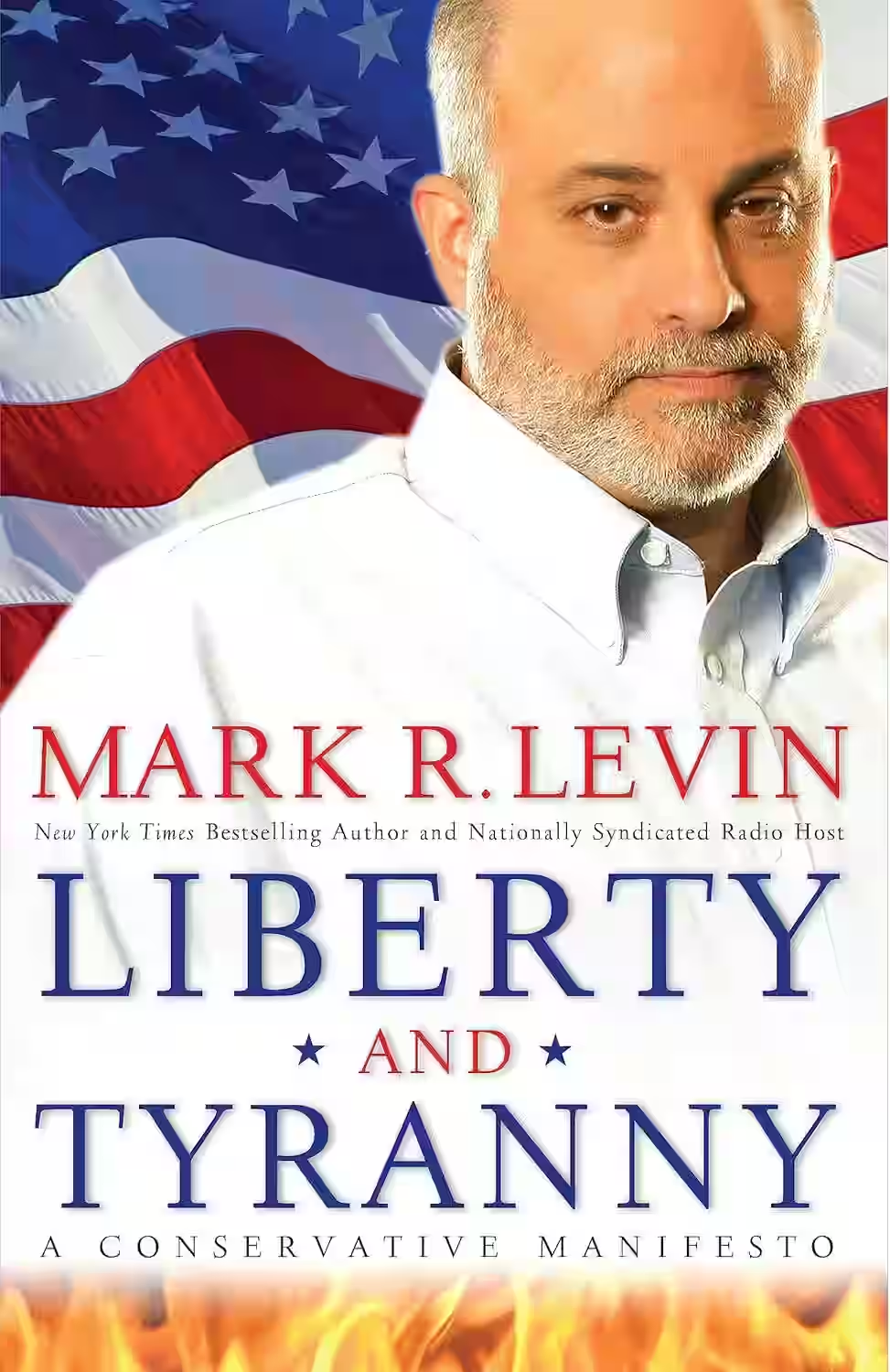
Liberty and Tyranny: A Conservative Manifesto
In 'Liberty and Tyranny: A Conservative Manifesto' by Mark R. Levin, the author lays out a compelling argument for the preservation of conservative principles in the face of what he sees as the encroaching power of government. Levin delves into key themes such as individual liberty, limited government, and the importance of upholding the Constitution. Through a blend of historical analysis, political commentary, and passionate advocacy, Levin challenges readers to rethink their understanding of governance and the role of the state in society. His thought-provoking manifesto sparks important conversations about the enduring values that underpin American democracy.

Plunder and Deceit: Big Government's Exploitation of Young People and the Future
In 'Plunder and Deceit: Big Government's Exploitation of Young People and the Future,' Mark R. Levin presents a thought-provoking critique of government policies and their impact on the younger generation. Through insightful analysis and compelling arguments, Levin discusses how bloated government programs not only hinder individual liberty but also jeopardize the future of young Americans. He delves into topics such as education, entitlements, and the national debt, offering a conservative perspective on the challenges faced by the youth. This book serves as a rallying call for a reevaluation of governmental practices to secure a better future for the next generation.
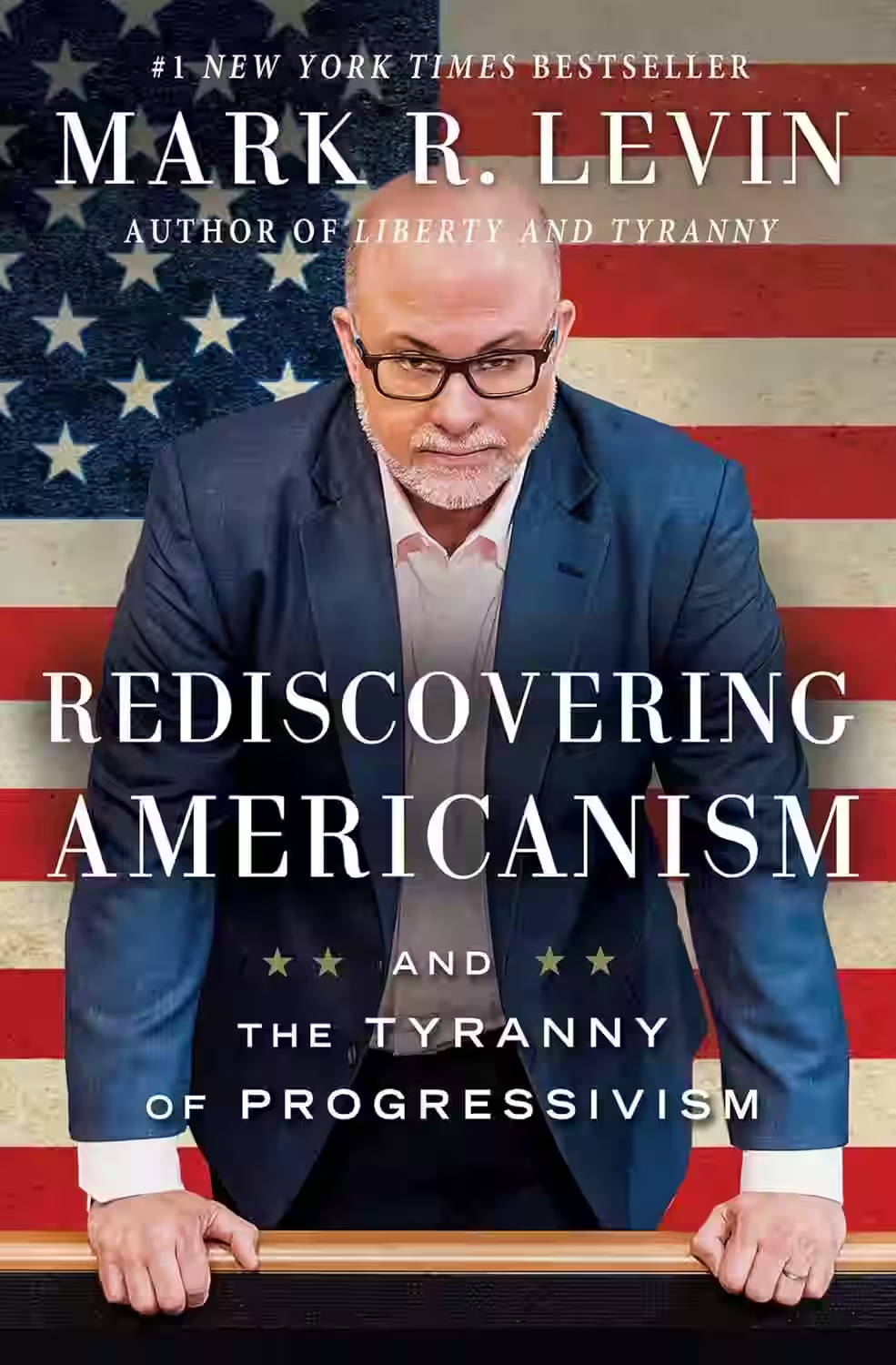
Rediscovering Americanism: And the Tyranny of Progressivism
In 'Rediscovering Americanism: And the Tyranny of Progressivism,' Mark R. Levin delves into the core principles of American conservatism and the dangers posed by the progressive movement. Through a comprehensive analysis, Levin examines the Founding Fathers' vision for America, emphasizing individual liberty, limited government, and free markets. He critiques the progressive ideology for its deviation from these principles, highlighting its threat to the American republic. Levin's compelling argument calls for a return to the roots of Americanism to safeguard the nation's future. This thought-provoking book challenges readers to reconsider their understanding of American values and the ongoing battle between conservatism and progressivism.
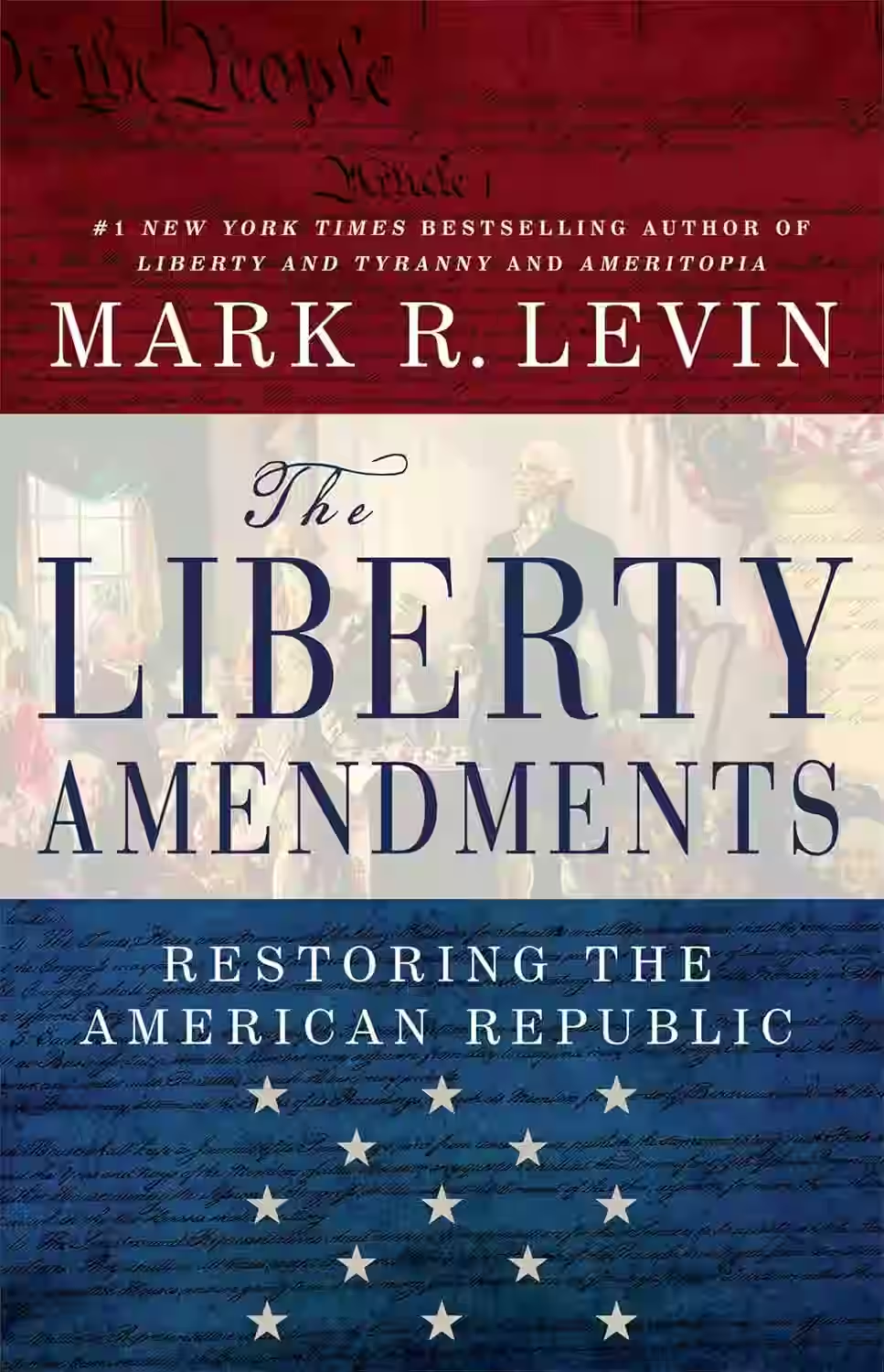
The Liberty Amendments: Restoring the American Republic
In 'The Liberty Amendments: Restoring the American Republic' by Mark R. Levin, the author proposes a set of Constitutional amendments to restore the balance of power between the federal government and the states. Levin argues that a departure from the principles of limited government has led to a decline in individual liberty and the erosion of the Republic's foundation. Through a detailed analysis of historical context and constitutional theory, Levin presents a compelling case for empowering the states and the people through amendments aimed at curbing federal overreach. This thought-provoking book challenges readers to reconsider the role of government in safeguarding liberty and offers practical solutions to reignite the spirit of the American Republic.
Similar Books
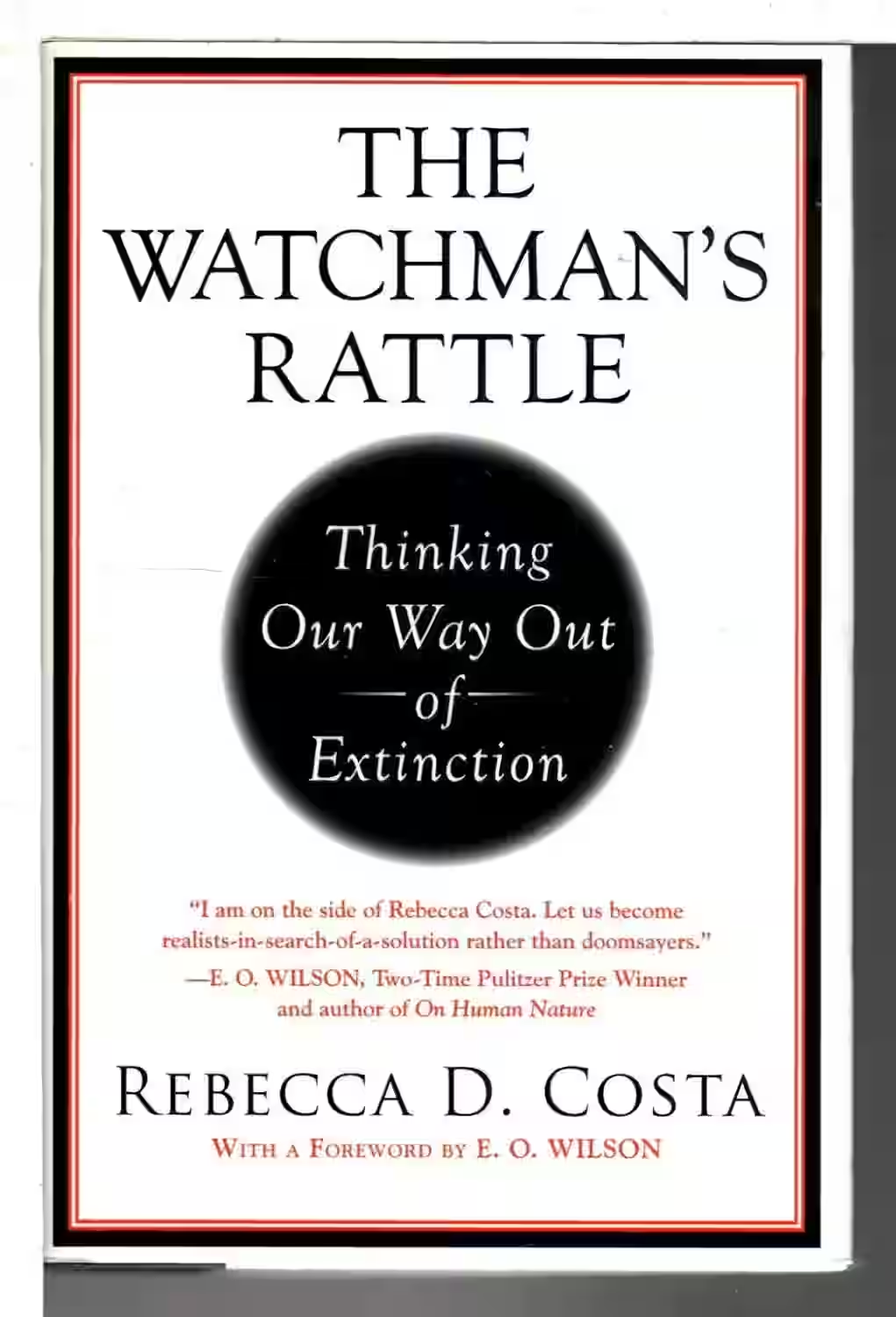
The Watchman's Rattle: Thinking Our Way Out of Extinction
Rebecca Costa’s The Watchman’s Rattle explores how civilizations collapse when complexity outpaces our ability to solve problems. Blending science, history, and psychology, she argues that as global crises become more complex, society risks paralysis unless we evolve our cognitive strategies. Costa introduces the idea of “cognitive threshold,” suggesting we must adopt new ways of thinking—such as intuition and pattern recognition—to survive modern challenges. The book links ancient failures with contemporary threats like climate change and global instability. It’s a call to embrace adaptive thinking before our most pressing problems become unsolvable.
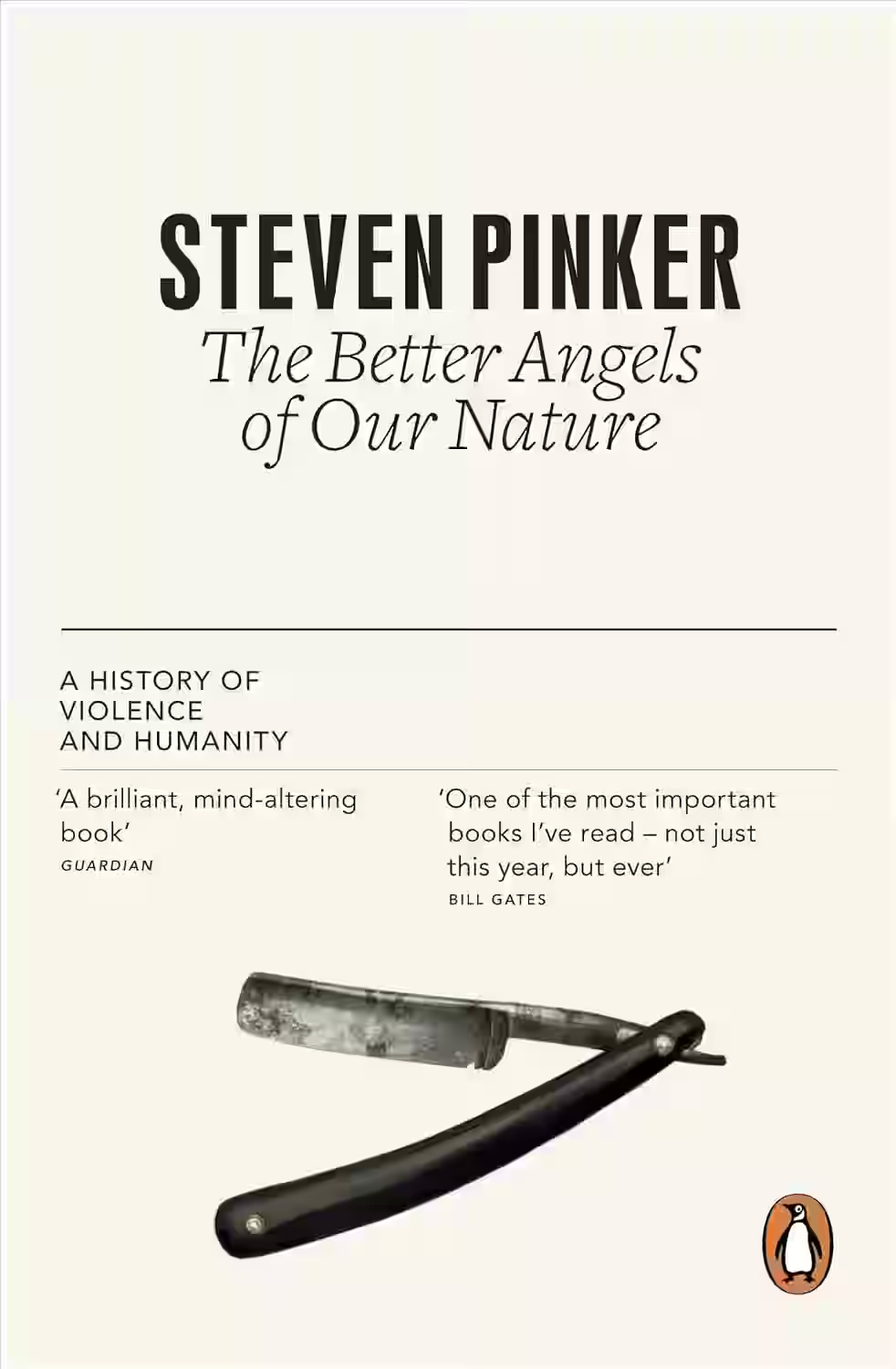
The Better Angels of Our Nature
In The Better Angels of Our Nature, cognitive scientist Steven Pinker argues that, contrary to popular belief, violence has declined significantly over human history. Drawing on data from psychology, history, and political science, Pinker examines how societal changes—such as the spread of literacy, trade, and centralized governance—have contributed to a more peaceful world. He identifies forces like empathy, reason, and moral progress as "better angels" guiding human behavior. Though controversial, the book provides a compelling, data-driven narrative that challenges pessimistic views of human nature and makes a bold case for the progress of civilization over the centuries.

Losing the Long Game
In 'Losing the Long Game' by Philip H. Gordon, the author delves into the complex foreign policy decisions of the Obama administration and explores how strategic missteps led to America's diminished global influence. Gordon critiques the administration's handling of critical issues such as the Syrian civil war, tensions with Russia, and the Iran nuclear deal. He argues that a lack of cohesive long-term strategy eroded American credibility on the world stage. Through insightful analysis and behind-the-scenes anecdotes, Gordon prompts readers to reflect on the implications of short-term thinking in international relations. This thought-provoking book offers a valuable perspective on the challenges of maintaining global leadership.
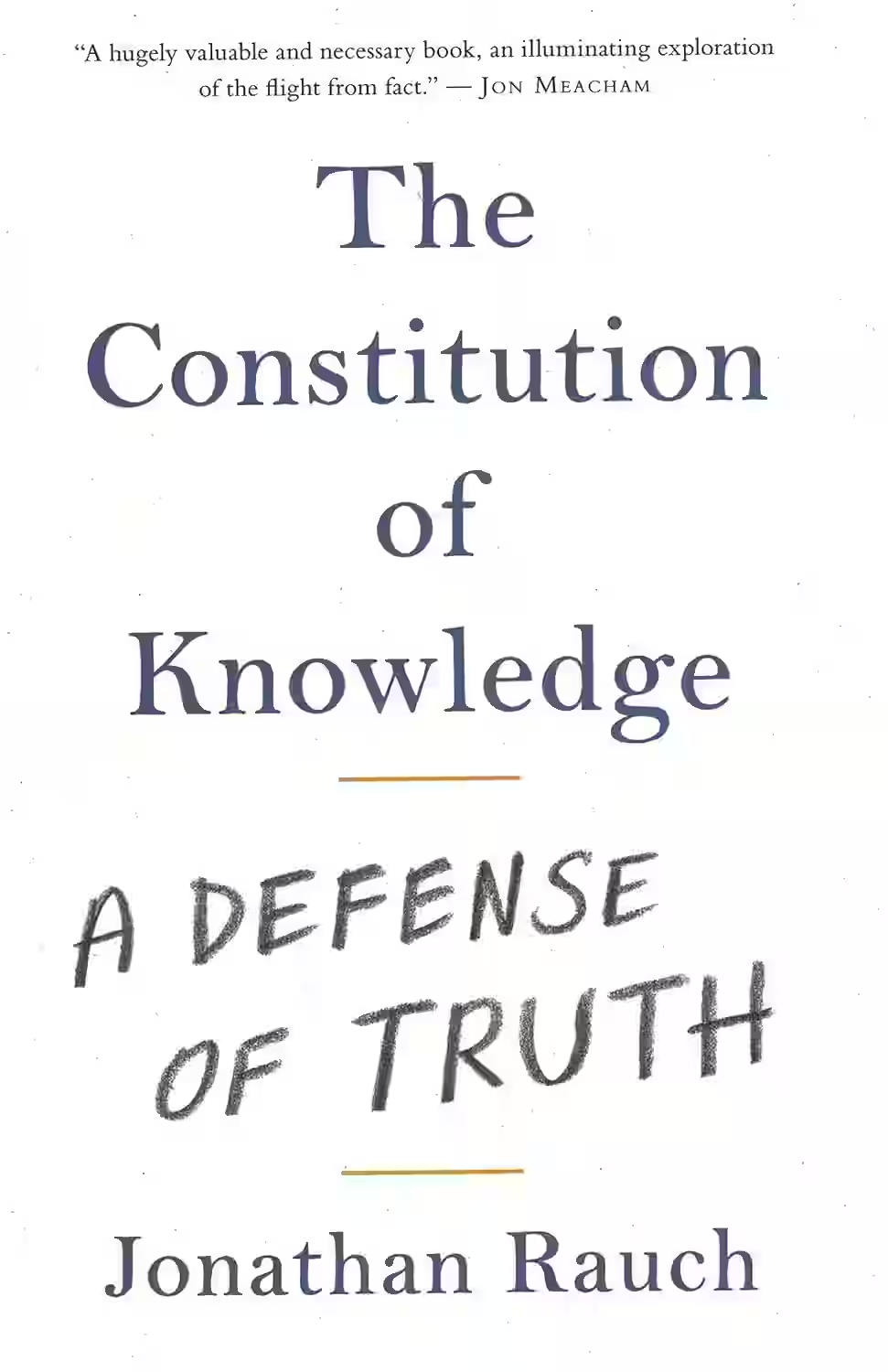
The Constitution of Knowledge
In The Constitution of Knowledge, Jonathan Rauch defends the epistemic institutions—science, journalism, academia—that uphold truth in democratic societies. He explores how norms like open debate, peer review, and fact-checking serve as a “constitution” governing the marketplace of ideas. Amid rising disinformation and tribal polarization, Rauch argues for preserving this knowledge system through free speech, tolerance, and intellectual humility. Blending political philosophy, history, and media studies, the book is both a defense and a roadmap for safeguarding truth in a digital age. It's an essential read for anyone concerned about democracy, truth, and the future of civil discourse.